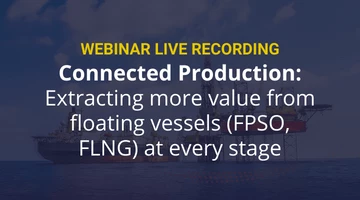MODEC FPSO Masterclass: Technical Challenges and Cost-Effective Methods for Conversion Projects
Add bookmarkSpeaking at Oil & Gas IQ's inaugural Excellence in FPSO Design, Construction & Operations in China event in Tianjin, China, Gunasekaran Palanivel and Bai LiGuo of top floating production solution provider, MODEC, deliver their presentation on the technical challenges and most cost-effective solutions converting tankers for FPSO usage.
The majority of the world's 200 FPSOs are not, in fact, purpose built floating production, storage and offloading units, but are converted transportation vessels that have come to the end of their useful lives. The very first FPSO ship, Shell's Castellôn, was just one such vessel.
Founded in 1968, MODEC is a general contractor specializing in engineering, procurement, construction and installation of floating production systems including Floating Production Storage and Offloading (FPSO) vessels, Floating Storage and Offloading (FSO) vessels, Tension Leg Platforms (TLPs), Production Semi-Submersibles, Mobile Offshore Production Units (MOPUs) and other new technologies which will meet the challenges of various types of gas production floaters.
In the course of their presentation, Gunasekaran and Bai will take us through the crucial issues when it comes to:
- Understanding the pertinent criteria in the selection of a suitable tanker for conversion
- Solving the materials issues – what to use and how much of it?
- Examining the kinds of hull fatigue conditions that will be faced in harsher environments
- Developing a sound conceptual design to spearhead the conversion project
- Exploring different ways to go about cost-cutting before, during and after the project has taken place.
[eventpdf]
LEARN MORE:
- The Top 10 Oil & Gas Companies in the World
- 50 Oil & Gas People You NEED To Follow On Twitter
- Oil & Gas Industry: An Introduction
- Oil and Gas Production - An Introduction
- Oil and Gas Technology: The Future Is Now
-
FPSO Resource Centre: Introduction to Floating Production Storage and Offloading
|
|
Have Your Say Rate this feature and give us your feedback in the comments section below |











